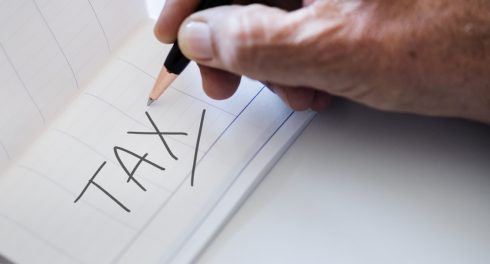
Photo: Pexels
At the Open Society Foundations, we are committed to transparency and continuously exploring better ways of regularly communicating our programmatic and funding strategies to the public. In this two-part blog series, the Fiscal Governance Program (FGP) is delighted to share a summary of our new strategy for 2018-2021. FGP’s budget for FY 2018 is $20.5 million, with a ten-person team based in New York and Washington, D.C. Read the first part here.
At the Open Society Foundations, we develop new four-year strategies every two years. This may seem (and sometimes feels) like a lot, but one benefit of a shorter strategy cycle is that it helps ensure we are constantly taking stock of changes in the external environment—and there have been some big changes in the fiscal governance landscape in the past two years. From the disruptive impacts of Brexit and the U.S. presidential election on global governance, to the rapidly decreasing ability of civil society organizations to operate free from government surveillance, harassment, and attack (even in countries with relatively democratic histories like Mexico and Tanzania), traditional champions and “stable” enabling environments that many of us took for granted are changing fast.
The much-discussed rise of nationalist, xenophobic, isolationist sentiment in the U.S. and Europe has undermined political support for multilateral approaches to addressing all manner of transnational problems—trade, human rights, climate change, take your pick—including more open and accountable governance. These are challenging and uncertain times with illiberalism rearing its ugly head on nearly every continent, citizens’ faith in their governments continuing its precipitous decline, and inequality rising to its highest levels in recorded history.
More hopefully, we have seen islands of remarkable progress and leadership across the fiscal governance field in recent years. Tax governance is finally getting its due in mainstream politics. Formerly seen as a fringe concern of a small group of activists, more just and accountable tax governance has now become a central focus for institutions like the OECD, the United Nations Economic Commission for Africa (UNECA), and the EU. More governments, private sector actors, civil society, and especially the media are taking up this issue as well.
We have also seen a growing intolerance for living with the status quo of pervasive corruption in societies around the world, and social mobilization on behalf of more open, accountable governance on an unprecedented scale in countries like Slovakia, Brazil, South Africa, Ukraine, and Guatemala, among others.
We have witnessed innovative approaches to citizens promoting more honest government, from Accountability Lab’s Integrity Idol competitions in Liberia, to BudgIt’s work to engage local citizens in development project tracking across Nigeria. There has been an explosion of investigative work highlighting the pernicious role that anonymous shell companies can play in facilitating crime and corruption, with policy advances from the UK to Ukraine, demonstrating that financial secrecy does not have to be the norm.
We have seen some impressive leaps forward in the amount of budget information that governments are proactively making available to citizens in recent years, as the 2015 Open Budget Survey demonstrated in Francophone West Africa. Social movements have started to take up budget advocacy as a tool to promote access to justice and essential services—the work of the Social Justice Coalition’s work on sanitation and land rights in Khayelitsha is remarkable. And a growing evidence base now suggests that good governance of natural resource wealth is indeed possible across all regions, with examples like Mongolia, Chile, Ghana and Indonesia sitting alongside better-known leaders like Norway and Canada on the 2017 Resource Governance Index.
More broadly, we have seen great leaps forward in the amount of financial information entering into the public domain on a regular basis, with UK/EU extractive payment reporting requirements taking effect in 2016, new rounds of EITI reporting now available across multiple years in a large number of countries, new beneficial ownership registries and public procurement databases coming on-stream in various countries, and access to full contracts and investment agreements becoming more prevalent in low and middle income countries.
What does this all mean for our Fiscal Governance Program’s strategy? Read part two to find out.

Julie McCarthy is the director of the Open Society Fiscal Governance Program. Follow her at @julienicmcc


